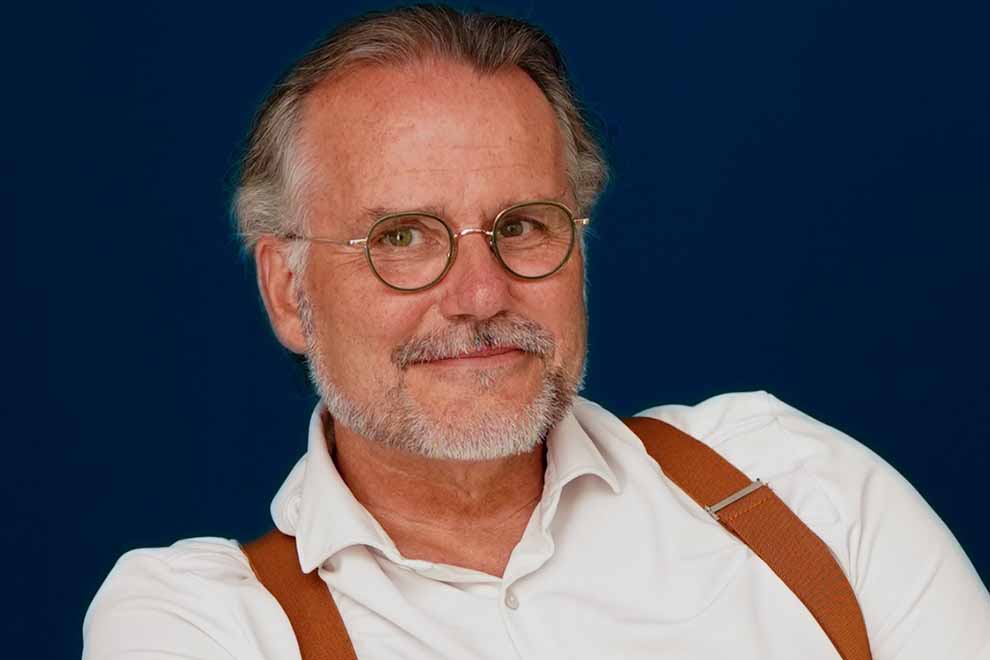When innovating, look beyond the boundaries of the healthcare domain. That is the advice that healthcare innovation strategist Lucien Engelen wants to give start ups: "Access to healthcare determines only 6 percent of our health." Therefore, it should no longer be about the patient journey, but about the journey of life. Engelen will present the National Healthcare Innovation Award on April 10 during Zorg & ict.
As far as Engelen is concerned, start ups play a vital role in healthcare innovation. "The startup mechanism is inextricably linked to innovation in health care," Engelen said. "There will always be start ups and that's a good thing. What I would like to pass along to start ups thinking about solutions is: don't focus too much on healthcare."
Patient journey
According to research, health is determined equally by genetic factors, socioeconomic position and lifestyle, respectively, about 20 percent each. "Healthcare determines only 6 percent of our health," observes Engelen.
"Still, that's where 90 percent of the budget goes now. But we are at the beginning of a turnaround. Numerous reports show that we are moving from 'care' to 'health.' So my advice to start ups is: look earlier and further down that chain around the citizen. At some point he may become a patient, but before and after that he is just another citizen. That means you have to look more at the journey of life -rather than the patient journey, to refer to Anne-Miek Vroom of Ikone.
Movement from the outside
As far as Engelen is concerned, healthcare innovators can emulate the retail sector. There, digital technology has brought about a logistics revolution. This has not only resulted in improved efficiency, but also better service and greater customer satisfaction.
Engelen: "With what is happening at supermarkets, online department stores and drugstores, we can greatly reduce the pressure on hospitals and general practitioners. That's where I still don't notice enough movement."
If healthcare is not going to move itself, that movement will come from outside, Engelen predicts. "We will be surprised by what comes at us from outside healthcare. Then I'm talking about companies like Amazon, Google and MicroSoft."
Monopoly Big Tech
For start ups, there are two sides to the growing interference of big tech companies. On the one hand, it creates opportunities for scaling up; on the other, it is becoming increasingly difficult for start ups to compete against Big Tech. "These parties are going to hunt down startups," Engelen foresees. "If they see something in what you have created, they will buy you. The American online pharmacy PillPack was acquired by Amazon for $6 billion at the time, to name just one example. That is a mechanism we will have to get used to."
Start ups that are more business-oriented than mission-driven will rejoice at such buyouts. But the trend also has societal implications. "It means that the gravitational pull of these kinds of platforms is only increasing," observes Engelen. "As a result, it monopolizes even more."
Co-creation
Yet Engelen also sees developments that are changing the healthcare innovation climate in the Netherlands for the better. "We have seen mostly point solutions in recent years. Everyone said: we have to do it together, but it starts with me. In other words: I do it for myself first, then others can join me. That approach is increasingly giving way to doing it together. You see more co-creation, both across domains and with family and caregivers."
Patient Demand
To his satisfaction, Engelen sees that more and more parties are also taking patient demand as their starting point, where previously technology was the main driver. "It is not yet commonplace, but where a few years ago a few did it, you see it more and more now. The landscape is changing. But the other thing is also still true: we have the technology, what problem do we solve with it? Fortunately, funders are becoming more critical of that approach. You really aren't there anymore with just a nice piece of technology."
Guidelines and protocols
In addition, Engelen sees less passivity among healthcare innovators. The tendency to wait for government urges or subsidies is diminishing. "You still sometimes hear calls: the government has to come up with guidelines. If you want all the guidelines and protocols to be there first, you can wait until you weigh an ounce, by which time that train will be long gone."
"The attitude for a very long time was: something new is coming and we'll wait for it. More and more people in the startup world are realizing that you have to start adopting standards that are there. Nobody questions anymore whether FHIR will continue and whether that data should be FAIR. That has sunk in. Real entrepreneurs just get going. People are increasingly looking for the space there is to make progress. As a result, people are coming together faster."
Separate funding
This means that the scale at which innovations are tried and applied is also growing. "You now see solutions where 1,500 patients are included," Engelen says. "It used to be maybe 50 or 60." Still, Dutch healthcare is not there yet in terms of digital competence. "Digital care is starting to become more and more commonplace. But we have to get rid of the word e-health. As long as we use that, it will remain a separate club with separate funding. It is 2024 and so it has become common care."
Learning culture
Engelen also stresses the importance of a learning culture. In this respect, healthcare can learn something from start-ups. "They regularly fall flat on their face and then get up again. We need to learn that in healthcare as well. I think failure and failure are two different things. Something can fail, but you fail if you don't learn from it. People often run out of ambition and energy if they work in an environment where nothing is allowed to fail. At Google X, you also get promoted if your project didn't succeed, because they learned from it and it is used again for new projects. We need to learn to appreciate that form of failure more in healthcare."
Zorginnovatie.nl will award the National Care Innovation Prize for the ninth time in 2024 for the most innovative care innovation in the scale-up phase. The eight finalists have a chance to win the professional jury prize worth 10,000 euros and the public prize worth 5,000 euros. Voting for the audience prize is open from March 20 to April 3. The winners will be announced on April 10 during Zorg & ict, part of Dutch Health Week. The finalists will get a spot on the Heart of Health square during this event.












